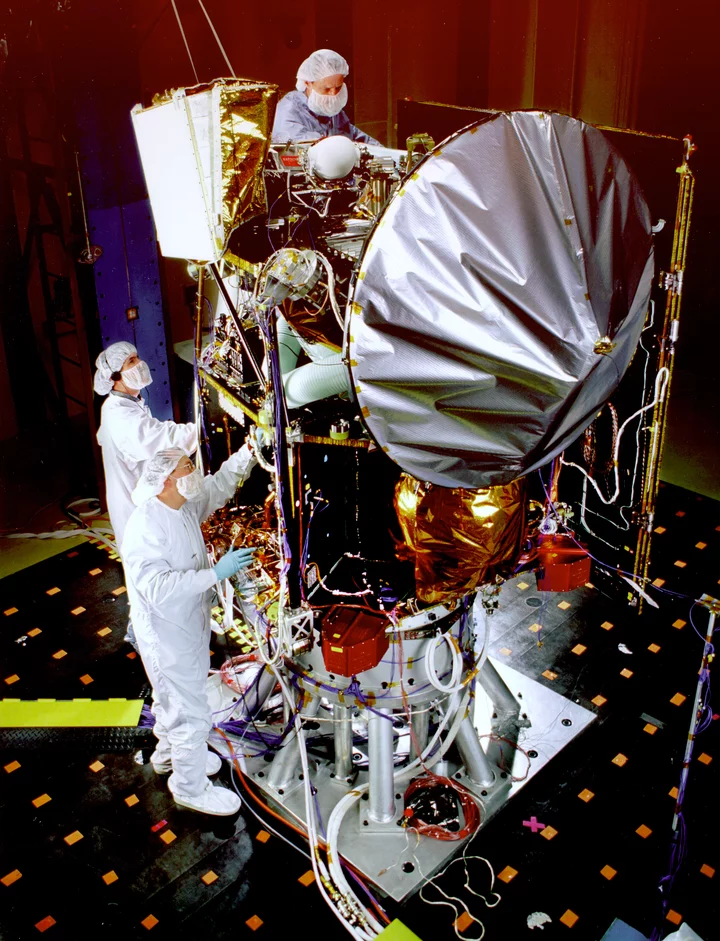Anyone who does their own taxes knows about confusion. Just trying to figure out which forms to fill out in the first place practically requires an MBA, while the calculations themselves require an advanced degree in math. (The current US tax code is over 70,000 pages long.) To paraphrase Herbert Morrison, who witnessed the fiery end of the Hindenberg in 1937, Oh the insanity!
Which got me thinking about other areas of confusion, large and small, that bedevil our lives.
Units, SI vs. US
The Mars Climate Orbiter, launched by NASA in December 1998, was lost the following September during the course correction designed to take it into a Mars-orbiting trajectory — it either burned up in the atmosphere or entered an orbit around the sun, missing the planet entirely. The error that resulted in the loss of the half-billion-dollar (in today’s money) spacecraft was that, while Lockheed Martin used the usual US units (pound-force), NASA used SI (metric) units, newton-seconds, meaning that instructions sent to Mars Climate Orbiter were off by a factor of 4.45.
The $600 million (in today’s dollars) Mars Climate Orbiter, lost on September 23, 1999 due to a metric conversion error. (NASA)
Next
“Today’s Sunday. I’ll see you next Thursday,” you tell me.
“Wait, do you mean four days from now or eleven days from now.”
“I said next,” you reply. “If I meant this Thursday, I’d have said so.”
(Try explaining that to a new immigrant in an ESL class.)
13/30, 14/40, 15/50…
“Do you realize that at least fifty percent of ESL students have trouble differentiating thirteen from thirty when they hear it?”
“You’re kidding. That’s funny.”
“Funny peculiar or funny ha-ha?”
Biweekly
I hate this one, and still have to check every time someone uses the word. (Ditto bimonthly and biannual.) According to Merriam-Webster, biweekly means both:
1: occurring, done, or produced every two weeks
2: occurring, done or produced twice a week
A commentary by the M-W editors notes, “The problem lies in the prefix bi-: it means (among other things) both ‘coming or occurring every two,’ and ‘coming or occurring two times.’ This too is a long-established fact that we cannot ignore. English is sometimes simply obstreperous.”
Glad we got that cleared up.
Time Change
I hate time change. You too, I’m guessing. Not just for screwing up biorhythms (there’s always a spike in traffic accidents twice a year) but for mundane stuff like Amtrak; every October, any Amtrak train running on time stops at 2:00 a.m. and waits an hour before getting underway again, so as not to mess up the schedule. Sigh. Airplane crews use Zulu/UTC time — which, if adopted by the USA, would eliminate so much confusion.
This mess would be gone if we all adopted Zulu time! (Public domain)
Days and Dates
Being a limey from Britain, my instinct is to write my birthday as 6/9/1942, that is, day/month/year, as is done in the UK, along with Europe, Mexico and nearly all the rest of the world. Here, of course, I have to invert the day and month (for 9/6/42) — in this the US is unique. Almost. In Canada and South Africa, there’s no official standard and you can go either way.
(By the way, the sun was firmly in the constellation Leo when I was born, so how come my sun sign is Virgo? Because of the precession of Earth’s axis since the Babylonians originally settled on 12 signs of the zodiac 5,000 years ago.)
Noon and Midnight
11:59 a.m. is one minute before noon, so why isn’t 12:00 a.m. noon? Actually, it is in Japan. And was, in this country; the style manual of the US Government Printing Office ordained 12 a.m. for noon until 2008!
I’m too confused to keep going. Time for one of my bi-hourly breaks.


CLICK TO MANAGE